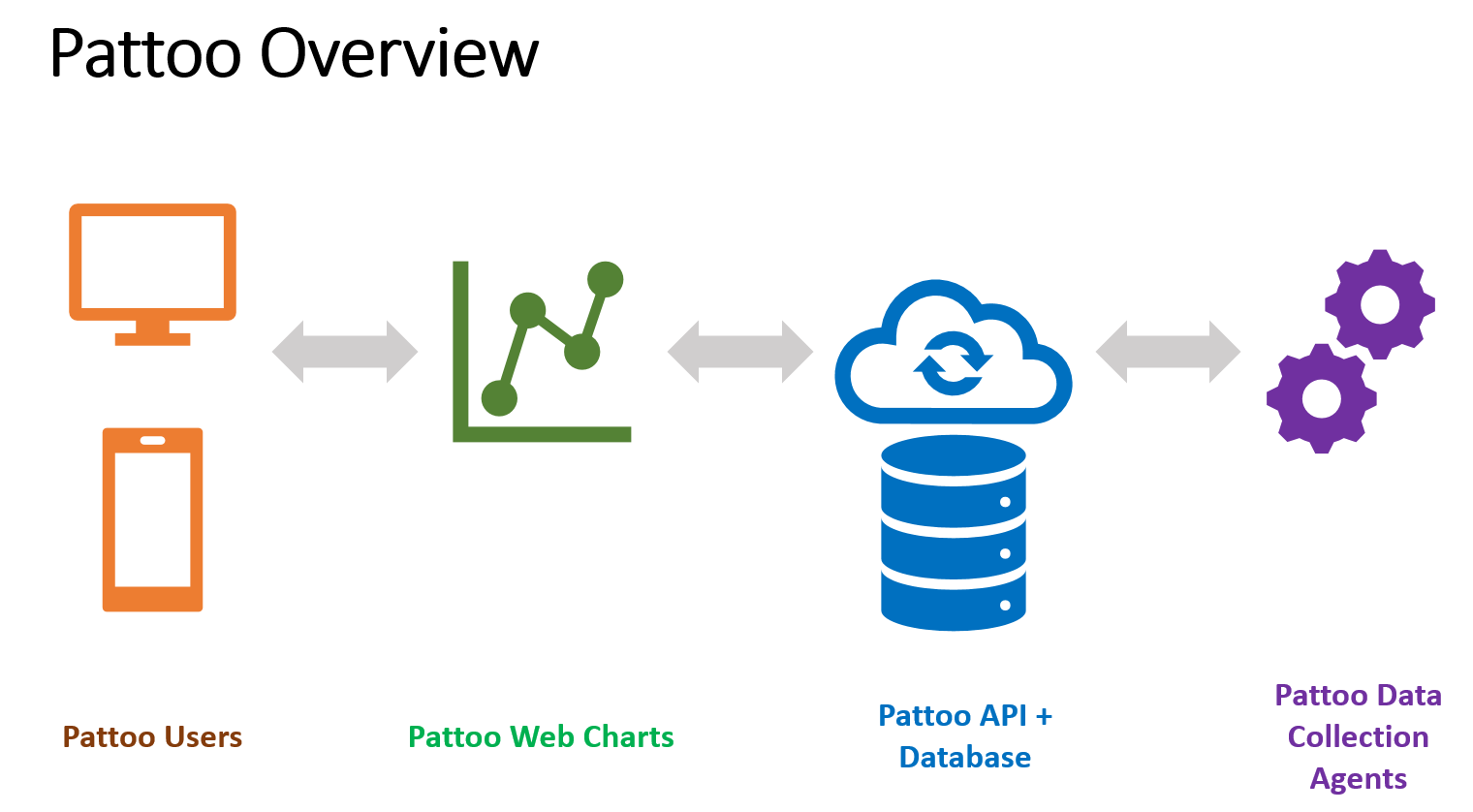Pattoo Documentation

An IoT data collection system
Introduction
pattoo stores timeseries data in a database and makes it available for users
via a GraphQL API.
It is flexible enough to chart a wide variety of data that changes over time by creating custom agents. There are guides to help you your own data collection agents to gather more generic time dependent information, like market prices, if you know where to obtain the data. Data can be collected from a number of sources.
The pattoo-agents repository provides a number of standard data collection
agents for IT systems. These include:
- Linux
- SNMP
- Modbus TCP
- BACnet/IP
- OPC UA
pattoo was originally created to assist DevOps and building facilities
management teams to monitor the performance of servers, applications and
electro-mechanical systems.
pattoo is flexible enough to chart a wide variety of data that changes over
time by creating custom agents. Test your Python coding skills. Documentation on how to do this can be found here.
pattoo currently only runs on Linux systems.
Version
pattoo is currently in alpha testing. Coders are welcome to add new features
and fix bugs. Each pattoo GitHub repository has its own issues section for
reporting bugs and making feature requests.
pattoo requires Python 3.6 or greater
Demo Site
The Pattoo demo site runs the current stable version of code.
Demo Video
This video provides a short overview of what pattoo does.
Now let’s get started.
Getting Started
Here’s what you need to know about pattoo.

There are four primary components to pattoo. These are:
- pattoo: The central API and database system that receives data from
pattoo-agentsand makes it available over the network via a web API. - pattoo-agents: Data collection agents that report data to the
pattooserver. - pattoo-web: A web UI that allows you to view the data stored on the
pattooserver. - pattoo-shared: A shared set of software libraries used by all
pattooapplications.
Let’s discuss how to install each of them.
Component Installation
Each component has detailed documentation which is listed below. The recommended order of installation is:
- pattoo
- pattoo-agents
- pattoo-web
The next section has links to sites that explain the installation of each.
The pattoo-shared component is automatically installed whenever any of the
other three are installed.
Documentation
There are a number of sets of documents that cover the pattoo
portfolio.
Pattoo
The data collection server that acts as the central repository of data
provided by the pattoo agents.
Pattoo-Agents
pattoo agents collect data from a variety of sources and send them to
the central pattoo server over HTTP. We provide a few standard agents,
but you can create your own. (See Pattoo-Shared for details)
Pattoo-Web
The web user interface to use to get access to the pattoo data.
Pattoo-Shared
All other pattoo components use this shared python library. This must be
pre-installed using pip3 for them to work. Fortunately the each component’s
installation scripts automatically does this for you.
You can use the pattoo-shared documentation to learn the basics of
creating your own custom pattoo-agents to feed data to the pattoo
server
About The Palisadoes Foundation
pattoo is based on the original infoset code created by the
Palisadoes Foundation as part of its annual
Calico Challenge program. Calico provides paid summer internships for
Jamaican university students to work on selected open source projects.
They are mentored by software professionals and receive stipends based
on the completion of predefined milestones. Calico was started in 2015.
